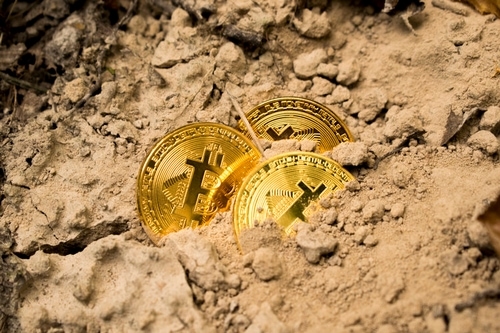What is cryptocurrency and why does it matter?

What is cryptocurrency?
Cryptocurrency is a digital asset. Or, to put it another way, money.
Here we’re going to concentrate more on the currency part than the crypto part. But - in brief - the currency is built with cryptographic protocols. Transactions are secure, and very difficult to fake. They’re also typically anonymous.
For the purposes of this page, we’re going to look into how cryptocurrency differs from ‘regular’ money (fiat currency), and who the major players are.
Call it what you want, in any language it spells m… But not in the bank
It’s easy to make the mistake of thinking about money in terms of notes and coins, especially in the UK where - in towns and cities - there are cashpoints peppered all over the place. However, economists have estimated that only around 8% of the money worldwide takes this physical form. The vast majority of money is formed of entries in databases.
Unless you stash reams of notes inside your mattress, most of your transactions are probably made up of card payments, and other digital payments such as direct debits. These will mostly be facilitated by a payments company (typically Visa or Mastercard) and/or your bank.
There are a few problems raised by the traditional system. One is that of double-spending. Due to error or falsification in databases, it’s possible money to be spent two times or more, making it difficult to keep accounts. Also, this tends to devalue currency as (a) there’s a greater amount in circulation compared to how much there should be, and (b) it reduces confidence.
In some senses, this is like when a cash machine vends twice the amount it should do, meaning twice the money intended to be given out is now in circulation. However, double-spending tends to take place virtually, and is often fraudulent rather than in error.
As all transactions in any cryptocurrency are noted on the corresponding ledger (the blockchain), it sidesteps the problem of double-spending, and the amount of money actually in use is transparent.
Another problem of the traditional system is that banks and other financial organisations will always recoup the money (and then some) from those that use it in terms of charges and fines. We’ve all experienced hefty bank charges, such as when we exceed our overdraft limit, and the sting often seems to bear little relation to the reality.
But in truth, banks are covering other costs. For example, operating a system of cash is incredibly expensive. Having an infrastructure of cashpoints, branches dealing in accepting and vending cash, in addition to paying staff… The costs pile up.
Maintaining a network where all transactions are digital is comparatively cheap. As such, those who use cryptocurrency don’t have to shoulder steep charges to make transactions.
Which are the biggest cryptocurrencies?
Well, Bitcoin (BTC) is obviously one of the biggest and best-known players in the cryptocurrency game. So much so that we have an entire page about what Bitcoin is.
But the cryptocurrency field is expanding steadily. Here are some of the other major players:
Litecoin (LTC)
Litecoin was launched in 2011 by Charlie Lee, a former engineer for Google. It operates in a similar way to Bitcoin, but transactions are confirmed more quickly. Hence ‘lite’! It’s sometimes referred to as the silver to Bitcoin’s gold.
Ethereum (ETH)
A decentralised software platform that facilitates trade in Ether, Ethereum was launched in 2015. But it was already generating a huge buzz with its pre-sale in 2014, which has popularised initial coin offerings (ICO). After an attack in 2016, Ethereum split into Ethereum (ETH) and Ethereum Classic (ETC).
Dash (DASH)
Dash also operates like Bitcoin, but affords a greater degree of anonymity (notice how the person on its website is facing away?). It was developed by Evan Duffield, and launched as Darkcoin in 2014. It was rebranded to Dash (‘Digital cash’) in March 2015.
Ripple (XRP)
Launched in 2012, Ripple offers instant, low-cost international payments in real time. It’s different from most other cryptocurrencies in that its central ledger doesn’t require mining to validate transactions. It’s popular with established financial institutions.
Stellar (SCP)
Stellar is a little like Ripple in that it facilitates fast, cheap cross-border transactions. It forked from the same protocol in 2014. It differs in that it’s open source (Ripple is a closed system), and is more popular among developing markets.
Zcash (ZEC)
Zcash was launched in 2016. “If Bitcoin is like http for money, Zcash is https" is how it describes itself. In other words, it styles itself as a more secure, private alternative. For example, when transactions are committed to the blockchain, they omit details such as sender, recipient and payment amount.
Bitcoin Cash (BCH)
Bitcoin Cash split from Bitcoin in August 2017, and remains a successful alternative. The split was due to disagreements over scalability. Bitcoin Cash increased its block size, which allows for faster transaction times.
Get in touch with the team to find out how to protect your assets from theft.

